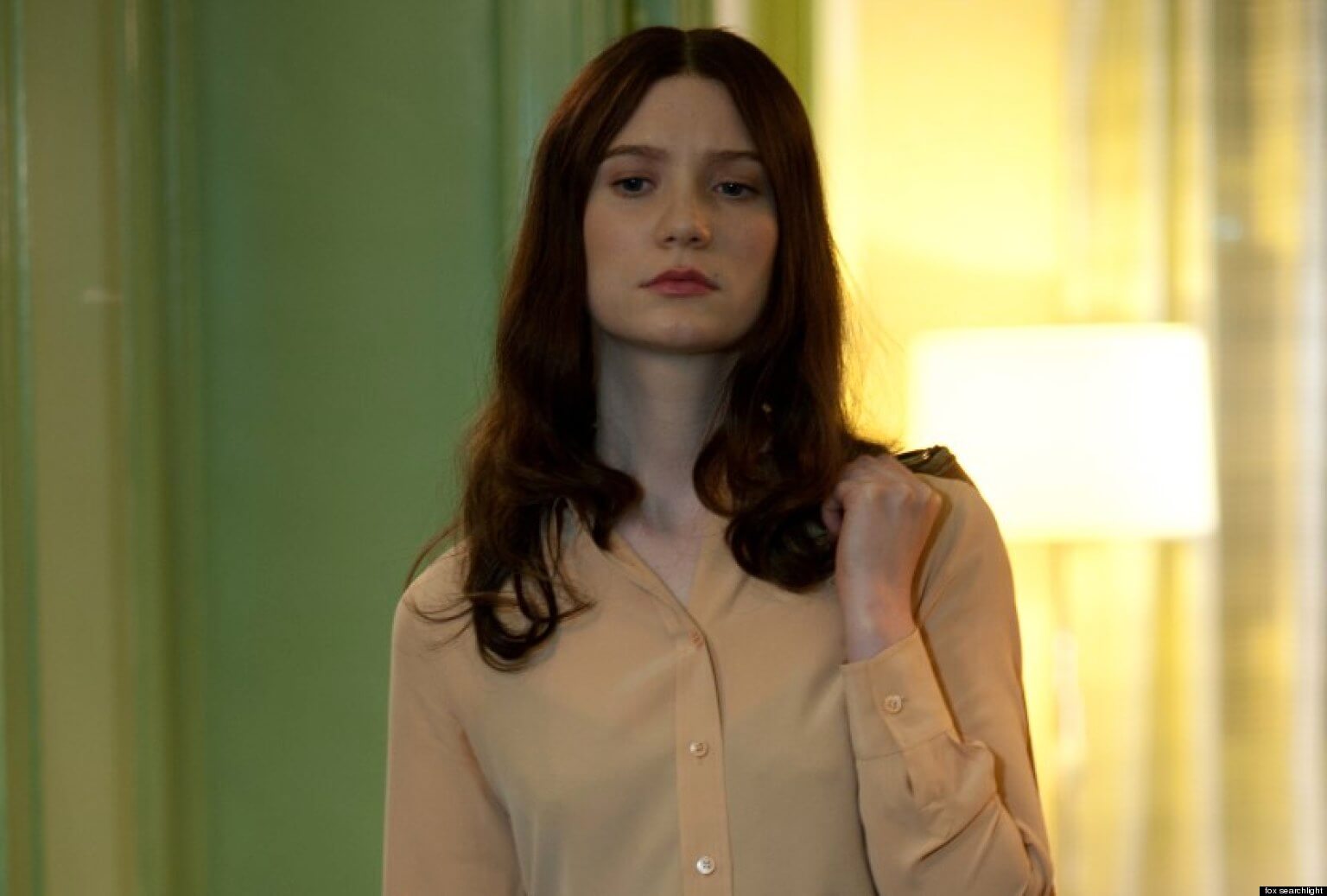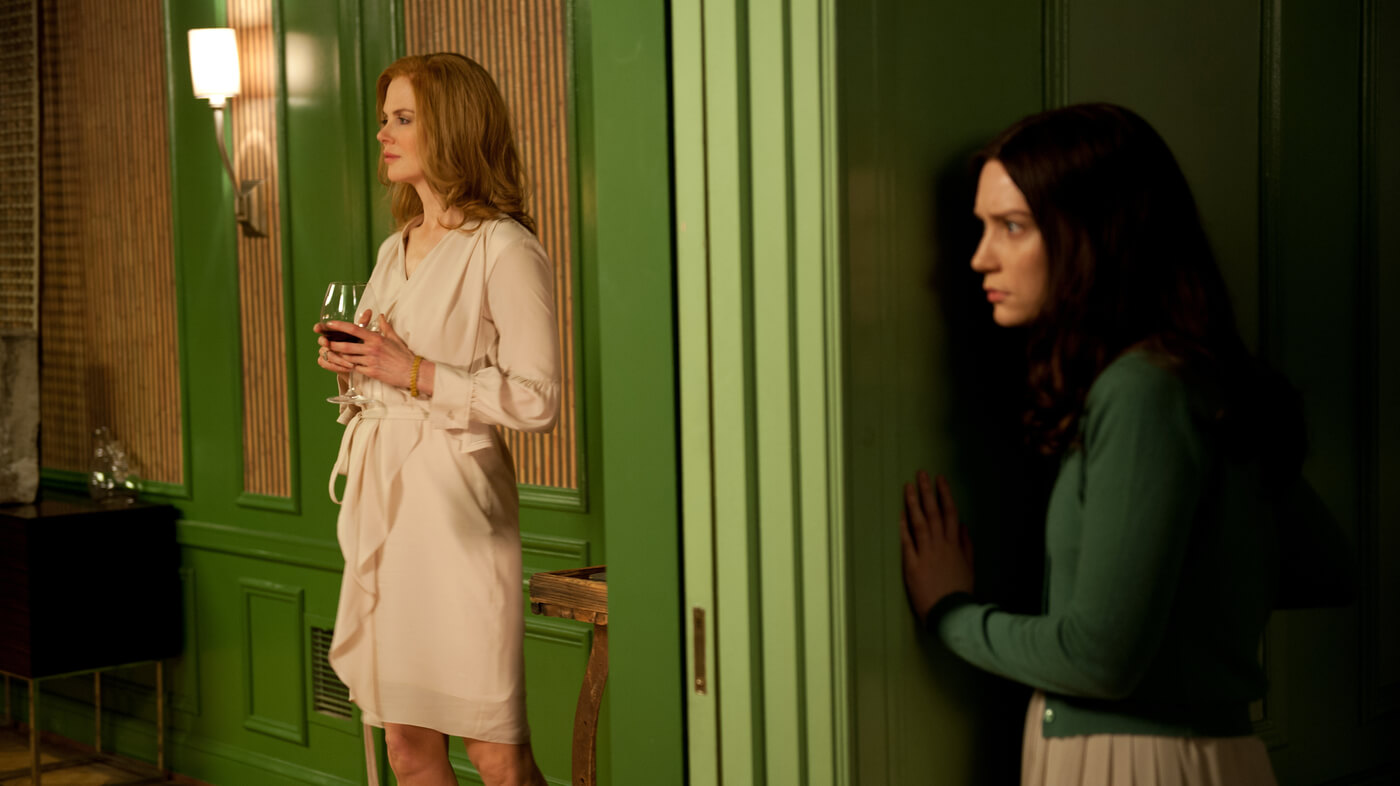STOKER. Exceptional thriller. We’d like some more…

It was only a matter of time before Hollywood took notice of the creator of the Vengeance Trilogy, and with his American debut, the director does not disappoint. However, Stoker is also a film for viewers yearning for a poetic thriller that demands a certain sensitivity—realism seamlessly blends with Park’s strongly phantasmagorical aesthetic, weaving a chilling tale of the encounter between evil and innocence, and its consequences.
Through the eyes of the coming-of-age India Stoker (played by the atypical Mia Wasikowska), we witness the drama of her family. On the day of the girl’s eighteenth birthday, her father dies, and someone she has never heard of—her deceased father’s brother, Uncle Charlie (the remarkable Matthew Goode)—arrives for the funeral. It is known that he has traveled extensively, recently engaged in archaeological excavations in Europe. However, India is wary of her relative, especially when he takes a keen interest in the not-so-grieving widow (played by Nicole Kidman). Soon, people from the Stoker family’s surroundings begin to disappear, and the teenage protagonist uncovers her uncle’s dark secret. And it’s not just one.

The plot resembles Alfred Hitchcock’s Shadow of a Doubt—there, too, a young girl learned not-so-pleasant things about her uncle Charlie. The difference is that in the 1943 film, the main character initially adored her uncle, and over time, fear and disgust dominated the relationship. Here, instinctive dislike and distance give way to a certain fascination and then something more. Those who have seen Oldboy and other Park films know that he is not afraid to place his characters in situations that make them victims of their own desires. In Stoker, the depiction of this is somewhat softened (more suggestions than literalness), and the irony present in his previous works evaporates, but ultimately, it tells the same story—evil infects.
India quickly perceives the otherness in her uncle, as if she is not dealing with a living person but a specter. This partly stems from the girl’s incredible hearing, able to catch a conversation between two people from a considerable distance or sounds inaccessible to an ordinary person. Indeed, during the funeral, she hears her uncle, who is far away. But there are also moments when he appears out of nowhere or disappears silently. He turns out to be a good cook but never eats anything. His face often seems unnatural—wide-open eyes greedily absorb whatever he is looking at. So, it’s no wonder that the young and innocent India feels uneasy in his presence.

But this innocence seems to be superficial. Mia Wasikowska, from the first scenes, plays a person who is both victimized and withdrawn on one side and aggressive on the other, even if it is deeply concealed. The hunger for what awaits her becomes apparent with the appearance of the mysterious uncle. India matures sexually and mentally, realizing that there are certain things beyond her control—restraints will sooner or later give way. Whether it concerns rivalry with her mother, crude remarks from boys at school, or the mysteries of both her uncle and father, young Stoker will have to bid farewell to innocence, not because she turned 18 and her world collapsed, but because she concluded that this is what she wants.
Chan-wook Park’s film is a feast for the eyes. Precision of frames, often very original, color palette, and the overall look of Stoker are captivating, and I often found myself paying much more attention to a specific image than to the events unfolding. Wentworth Miller’s screenplay (the same person who played the lead role in Prison Break) uses Hitchcockian patterns but transforms them, not always in line with the viewer’s expectations, and not always entirely successfully. As the plot develops, I began to understand that the mystery is not the most important aspect here, nor the unexpected twists. We discover disturbing facts along with India, and her reaction seems crucial, driving the entire film. The director confirms this by cutting or entirely abandoning typically thriller scenes, building tension in moments that might seem mundane, like a conversation at the table.

But Stoker is an exceptional thriller for another reason. Narratively, it is a cousin of Hitchcock’s Shadow of a Doubt, but formally, it is an excellent example of Park’s cinema. However, the somewhat dreamlike atmosphere created makes this film a parable of the duel between innocence and evil, similar to Charles Laughton’s Night of the Hunter. The use of dream aesthetics in thrillers usually ends in complete failure, but not in this case. Miller’s good screenplay, leaving room for interpretation in several places, served as an excellent model for Park to tell a strange but logical story in an unconventional way.

Perhaps there could be something more behind all these mysteries in ‘Stoker,’ but it’s probably good that Uncle Charlie remains a somewhat ghostly figure until the very end. Thus, he somewhat resembles a vampire (the hint provided by the characters’ surname seems not coincidental), whose only goal is to drink the blood of his victim. The motives and origin of what lies within him are irrelevant. ‘Flowers don’t choose their color,’ India says in the prologue, quickly adding that it’s the same with people. Park’s film tells the story of a girl who begins to distinguish colors.

